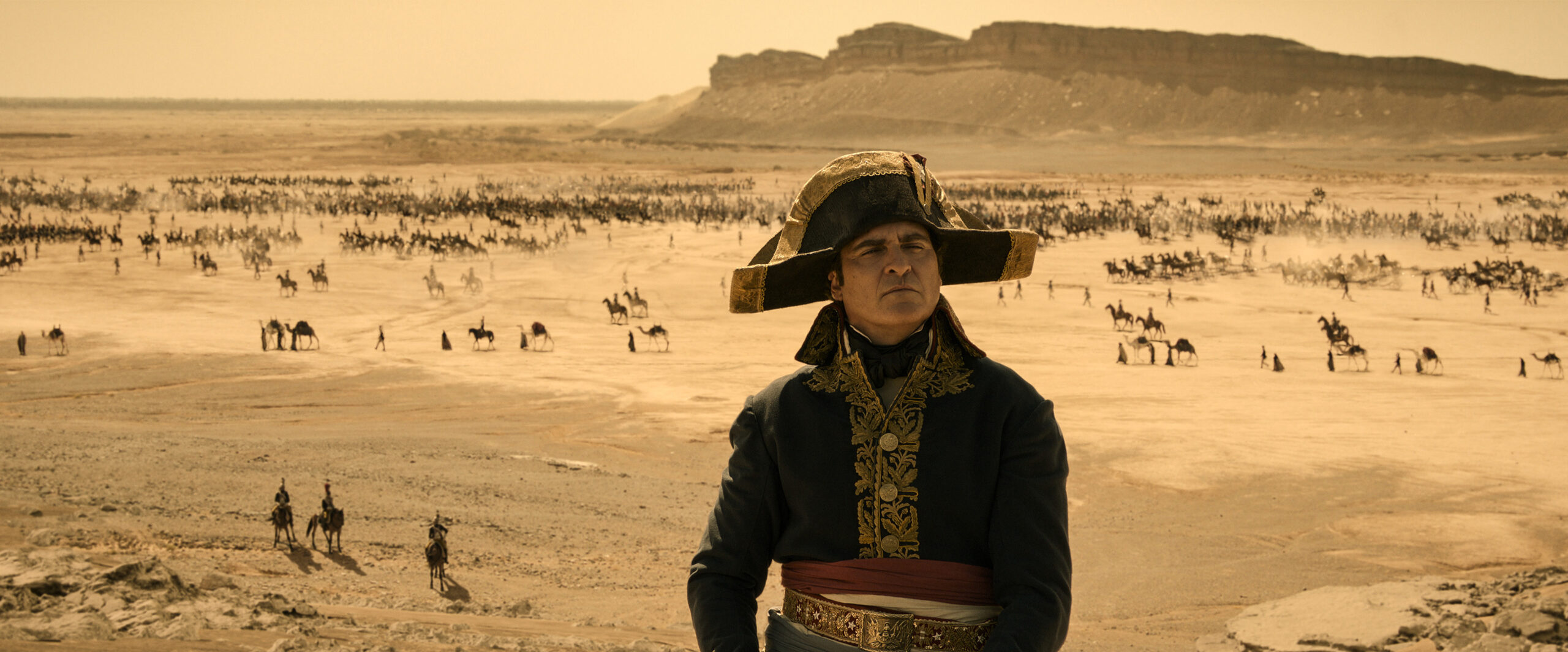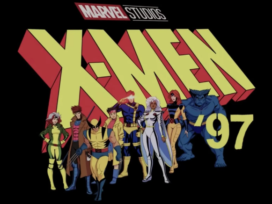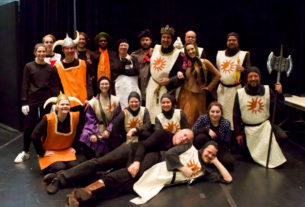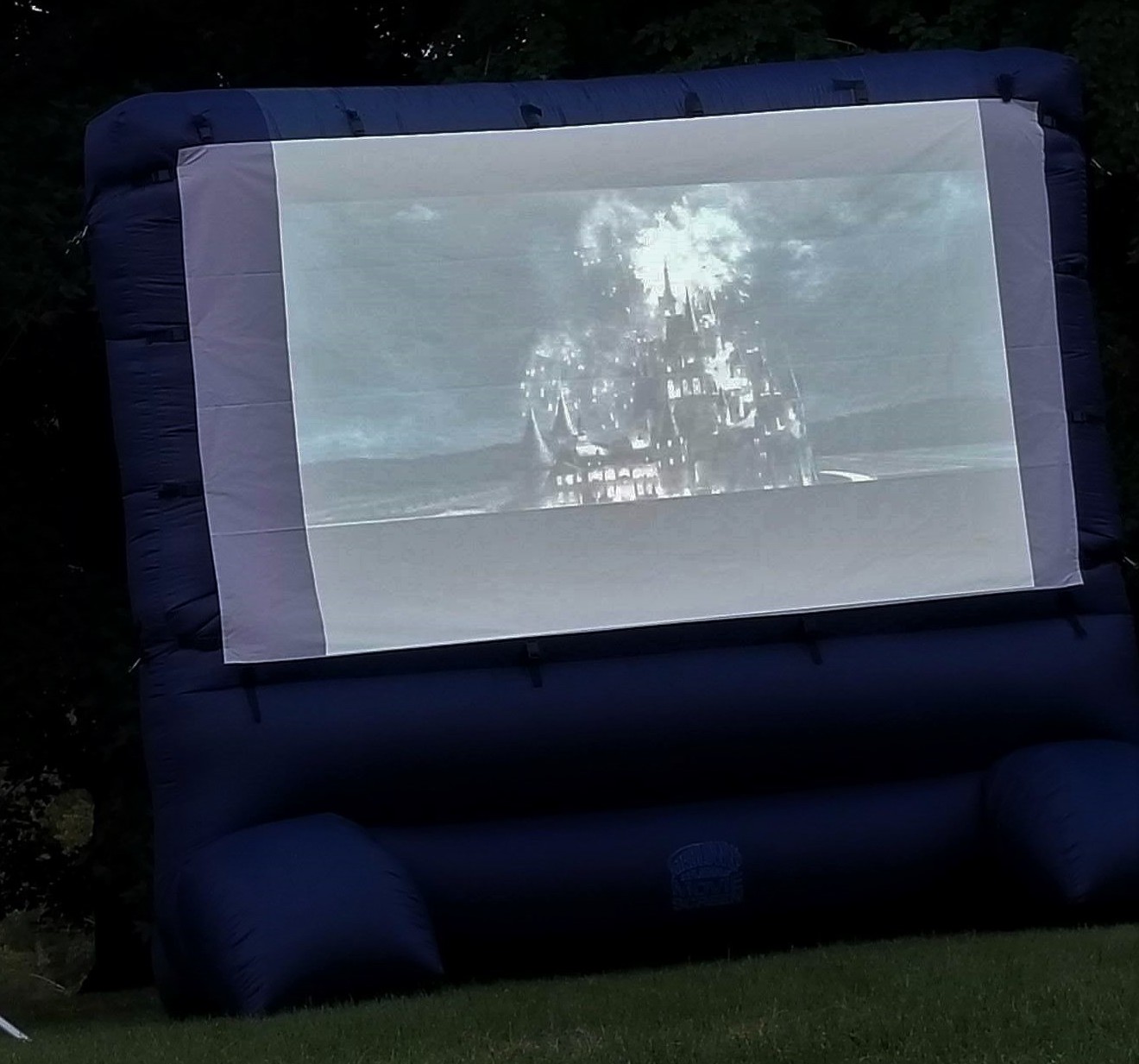
“Napoleon,” Bon in Part
“Warrior, Emperor, General, Genius, Rebel, Tyrant.” These epithets quickly flash across the screen in the trailer for director Ridley Scott’s latest epic historical film, Napoleon. While they may describe the historical Napoleon Bonaparte, you would be forgiven for thinking they are overblown if your only exposure to the man’s exploits came from Joaquin Phoenix’s performance.
Phoenix’s Napoleon is odd. For a man who commanded the adoration of an empire, citizens and soldiers of the grand army alike, he is remarkably uncharismatic. He’s petulant and morose. I don’t think this depiction is wrong by itself; a movie critical of the violent tyranny and megalomaniacal ambition of the French emperor could have been excellent, but Napoleon is so unappealing that it stretches believability. He was known for his bravado and gambler’s spirit, neither of which come through in the movie.
When returning from exile to reclaim his throne, Napoleon was met with a line of muskets pointed directly at him; the men of the 5th regiment holding them had orders to stop him from marching on Paris. Napoleon is supposed to have thrown open his coat and declared, “If any of you will shoot his Emperor, here I am!” The men immediately switched sides and began to cry, “Vive l’Empereur!”
In the movie, we are never shown how Napoleon could have earned that sort of loyalty, and when that scene comes around, Phoenix merely whines that he misses his troops and wishes they would follow him again. Truly a bizarre characterization of a fascinating figure.
Napoleon frequently twists and bends the verifiable historical facts of its narrative. Normally, this is where I would say something about “artistic license” or “a change for dramatic effect,” and there are a few of those. But some of the changes just seem sloppy for no reason, and a few actually make the story more boring (the scene I described above is an example).
“We took Italy without a fight,” says Napoleon. Multiple battles and tens of thousands of dead on both sides would argue otherwise. Napoleon shoots his cannons at the pyramids (no, he did not actually), causing the Ottoman general to faint and fall from his horse. Another victory without drama or display of genius. Why are two of Napoleon’s most famous campaigns relegated to a single line in the first case and a single joke scene in the second?
The script simply has no idea what to do with itself. There is no drama, no intrigue, no progression. A sequence of scenes plays one after another like bullet points in a history textbook. It seems like the script wanted to analyze Napoleon’s psyche and his motivations, especially through the lens of his relationship with his first wife, Josephine. The interactions between the two take up a lot of screen time that could have been spent crafting a proper narrative, but by the end, I felt nothing about either of them.
When the cannons begin to fire, however, is when this movie finally begins to shine. I saw the film in IMAX, and while I wouldn’t say it was worth the price, I was glad when it came time for the sprawling, epic battle scenes. We are given extensive showcases of the Siege of Toulon, the Battle of Austerlitz, and, of course, Waterloo. Like other aspects of the film, these battles have only a surface-level relationship with the history, but they provide enough visual spectacle and breathtaking action to remain enjoyable.
Napoleon is in theaters now and will eventually come to AppleTV+, with Jan. 6, 2024, as the earliest likely date. The theatrical cut is 2 hours and 38 minutes, but the version available to stream will be an hour longer, according to Scott.







